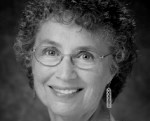By Sondra Shapiro
If I had a dollar for every time friends proclaim they can’t wait until they retire, I would be on my way to retirement financial security.
When they wistfully utter those words, I get the impression they really mean they can’t wait until they can alleviate the stress in their lives. They think retirement is the only answer. Sure, work does have its challenges and many days the stress level can reach into the stratosphere — believe me, I know that firsthand. But rather than making any rash decisions, thoughtful planning and soul searching should take place.
Recently, I had dinner with a friend who was vacillating over a decision to take early retirement from a job she has had for 35 years. She wisely said she didn’t want to jump into anything until she had an exit strategy and an idea of what she wanted to do after she left her high-powered, stress-laden job.
 The idea of traditional retirement — leaving the workforce — did not appeal to her. She mentioned that she was going to speak with a life coach to help her work things out. I offered my two cents telling her that whatever exit plan she decided on, that when she finally left her job she should take some time to not think about anything, to flow with her days for a while. This gift of time would allow her to search her heart’s desire without the stress of her day-to-day job getting in the way.
The idea of traditional retirement — leaving the workforce — did not appeal to her. She mentioned that she was going to speak with a life coach to help her work things out. I offered my two cents telling her that whatever exit plan she decided on, that when she finally left her job she should take some time to not think about anything, to flow with her days for a while. This gift of time would allow her to search her heart’s desire without the stress of her day-to-day job getting in the way.
I also warned that the sedentary lifestyle could be addicting. I have seen it happen more often than not, although it is my recently-retired fellow boomers who most frequently ask, “What’s next?”
Study upon study confirms that Americans are working well into what is considered traditional retirement years. I say if a person likes what he or she is doing for work they should continue doing it. If not, it’s never too late to change a career — begin a second chapter.
Lin Weeks Wilder, who had a long, distinguished career in the health care industry, and is now a prolific writer, concurs. “Although there are some baby boomers over 60 or ‘over 65ers’ who would be content with a life of leisure, sleeping as late as they please with all the time in the world, most of us are happiest when we are working, studying, learning, risking, making a difference and using our gifts, regardless of our age.”
Wilder believes a love of learning is an instinctive human condition. “We are placed here some believe purposely, others believe randomly, but each of knows that we are here to learn.”
I asked Wilder what five pieces of advice she could offer to those considering retirement or who have recently left a career:
•Think, pray and/or mediate about what you really care about, even love. The thing that you’ve always said, “If I only had the time, I would…” Each of us has a vocation, a gift that if we don’t do it, write it or draw it, it will not be done, written or drawn.
•Decide to become a student again and learn to love the learning you will need to do in order to become the very best at what you love. If you must make money right away, don’t quit your day job; this will take time and most likely money.
•Expect opposition. There will be resistance from others but the most dangerous is from within yourself. Anytime we create something new, there will be resistance.
•Find friends who feel as you do — who have decided to use their gifts fully and completely — who have decided to launch a new career at 50 or at 60. There are plenty of us online if you look.
•Take care of yourself. If you have not developed healthy eating, exercise and sleeping habits do so now or you will not have the energy you need to do this new work well.
In the quest for peace and calm in our lives, many of us sacrifice too much when we take retirement literally. We give up the excitement and adventure of life. We can never replace that time.
Wilder, who holds a doctorate in Public Health, and has 30 years of administrative experience in academic health centers ranging from critical care nurse to a hospital director at University of Massachusetts Medical Center, poses the question: Is retirement cancer of the soul? “I recall many laughter-filled conversations with my 30- or 40-something-year-old colleagues as I attempted to explain that I believed retirement to be dangerous — the consequential boredom, the reality of having too much time on one’s hands that can result.”
She proclaimed all those years ago that boredom was indeed a cancer of the soul and that retirement as her colleagues defined it “sounded ghastly.” The author of a murder mystery novel, The Fragrance Shed by a Violet, Wilder said, “Thirty years later, my predictions of the inimical consequences of boredom are reflected back to me from too many friends and neighbors whose interests seem bounded by their dwindling investment portfolios and the increasing number of maladies that are applied with each visit to their doctor.
“They are consumed by what they watch each evening on the nightly news and feel depressed, anxious and sad about the country, the government, the economy and their lives — tragic, unnecessary and such a waste of skills and gifts.”
Hmm, this sounds a lot like people I know, though I am not naming names.
I’m sure most of you will say that you deserve to live the good life, and so you should. But you could get so much more out of things if you grabbed for the gusto rather than settling on a Prozac-like existence.
Instead of heading off to play cards all afternoon, take a course at your local college. Skip a trip to the mall and volunteer your time at a school, animal shelter or senior center. Join the Peace Corps or consider a second career. Consult. Stay engaged.
Life is very precious; we need to make every minute count, at any age. Traditional retirement afterlife offers the perfect opportunity.
Sondra Shapiro is the executive editor of the Fifty Plus Advocate. Email her at sshapiro@fiftyplusadvocate.com. Follow her online at www.facebook.com/fiftyplusadvocate, www.twitter.com/shapiro50plus or www.fiftyplusadvocate.com.









